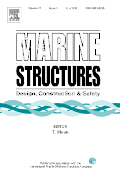
MARINE STRUCTURES
Scope & Guideline
Shaping the Future of Marine Engineering
Introduction
Aims and Scopes
- Marine Structural Design and Analysis:
The journal publishes research focused on the design, analysis, and optimization of marine structures such as offshore platforms, ships, and underwater systems, utilizing advanced modeling techniques and computational methods. - Hydrodynamic Interactions and Fluid-Structure Interaction:
Research related to the interactions between marine structures and fluid environments, including wave loads, slamming effects, and vortex-induced vibrations, is a significant focus, given the complexity of marine conditions. - Material Performance and Durability:
Papers exploring the mechanical properties, durability, and corrosion resistance of materials used in marine applications, including composites and metals, are central to the journal's scope. - Safety and Reliability Assessment:
The journal addresses safety and reliability in marine structures, including risk assessment methodologies and fatigue analysis, to ensure structural integrity under varying environmental conditions. - Innovative Technologies and Methods:
Emerging technologies such as machine learning, data-driven approaches, and robotics in the context of marine engineering are highlighted, reflecting the journal's commitment to integrating modern advancements into marine structural research.
Trending and Emerging
- Machine Learning and Data-Driven Approaches:
The integration of machine learning techniques for predictive analytics and monitoring in marine structures is on the rise, enhancing the ability to assess risks and optimize performance. - Sustainability and Environmental Impact Assessments:
There is a growing emphasis on the environmental impacts of marine structures, including studies on sustainable materials and eco-friendly construction practices, reflecting global priorities towards sustainability. - Advanced Computational Methods:
Research utilizing advanced computational tools such as high-fidelity simulations and hybrid modeling approaches is increasingly prevalent, allowing for more accurate predictions of marine structure behavior under complex loading conditions. - Resilience to Climate Change:
Emerging studies focus on the resilience of marine structures to climate change impacts, including extreme weather events and rising sea levels, as the industry adapts to new environmental realities. - Hybrid and Composite Structures:
Research into hybrid and composite structures that combine various materials and technologies for improved performance and reduced weight is gaining traction, showcasing innovation in marine engineering design.
Declining or Waning
- Traditional Materials Research:
Research focusing solely on conventional materials without considering innovative composites or hybrid materials has decreased, as the industry increasingly seeks advanced materials that offer greater performance and sustainability. - Static Structural Analysis:
There has been a waning interest in purely static analysis methods for marine structures, as dynamic analysis and fluid-structure interaction models gain prominence due to the complex nature of marine environments. - Basic Design Methodologies:
Studies centered on basic design principles without integrating modern computational techniques, such as finite element analysis and optimization algorithms, have seen reduced publication rates, indicating a shift towards more sophisticated approaches. - Local Failure Mechanisms:
Research focusing exclusively on local failure mechanisms without a broader context of system-level reliability and performance is less frequently published, as holistic approaches are favored.
Similar Journals

CHINA OCEAN ENGINEERING
Exploring the Depths of Ocean InnovationCHINA OCEAN ENGINEERING, published by SPRINGER MEDIZIN VERLAG GmBH, is a prominent journal in the fields of Mechanical Engineering, Ocean Engineering, and associated environmental sciences. With its ISSN 0890-5487 and E-ISSN 2191-8945, this journal caters to a broad audience engaged in research and development related to ocean systems and technologies. As evidenced by its Q2 ranking in Mechanical Engineering and Ocean Engineering, as well as its Q3 placement in Oceanography and Renewable Energy, Sustainability and the Environment for 2023, it provides a critical platform for disseminating innovative research and progressive ideas in these dynamic and interdisciplinary fields. The journal is committed to advancing the science of ocean engineering by focusing on sustainable practices and technological advancement, making it an essential resource for researchers, professionals, and students alike. With contributions from leading experts worldwide, CHINA OCEAN ENGINEERING is dedicated to exploring the multifaceted challenges and opportunities presented by our oceans.

Structural Integrity and Life-Integritet I Vek Konstrukcija
Unveiling Insights for Structural Performance.Structural Integrity and Life - Integritet I Vek Konstrukcija is a prominent open-access journal dedicated to advancing the fields of Civil and Structural Engineering, Mechanics of Materials, and Safety, Risk, Reliability, and Quality. Published by the SOC STRUCTURAL INTEGRITY & LIFE, this journal has been disseminating high-quality research since 2001 from its base in Belgrade, Serbia. The journal's commitment to open access ensures that vital research is freely accessible to a global audience, fostering collaboration and innovation within the academic community. With an impressive categorization in the 2023 quartiles, including Q2 in Metals and Alloys and Q3 in related fields, Structural Integrity and Life stands as a vital resource for researchers, professionals, and students striving to enhance understanding and applications in structural integrity and material performance. The journal invites contributions that address critical issues in the field, pushing the boundaries of knowledge and practical applications, and welcomes both empirical studies and theoretical discussions that can drive forward the next generation of engineering solutions.
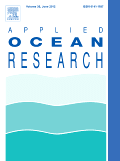
APPLIED OCEAN RESEARCH
Navigating the Depths of Innovation in Ocean EngineeringApplied Ocean Research, published by Elsevier Scientific Ltd, stands as a premier journal in the field of ocean engineering, with an impressive impact factor derived from its esteemed reputation and contributions to the discipline. Having been established in 1979, the journal has continually provided a platform for groundbreaking research, fostering innovation and advancement in applied ocean science through a diverse array of topics, including marine technology, coastal engineering, and ocean energy. Currently holding a prestigious Q1 ranking in the Scopus category of Ocean Engineering, with a rank of 10 out of 105 and a notable 90th percentile, Applied Ocean Research is a vital resource for researchers, professionals, and students dedicated to understanding and solving complex challenges linked to ocean environments. Although it provides subscription-based access, the depth and quality of research featured make it a key reference point for those in academia and industry alike. Located in the heart of London, this journal embodies a commitment to excellence in the study of ocean phenomena, positioning itself as a critical conduit for knowledge dissemination and professional growth in this dynamic field.

JOURNAL OF WATERWAY PORT COASTAL AND OCEAN ENGINEERING
Pioneering Sustainable Solutions for Aquatic EnvironmentsThe JOURNAL OF WATERWAY PORT COASTAL AND OCEAN ENGINEERING, published by the ASCE - American Society of Civil Engineers, is a premier scholarly journal devoted to the interdisciplinary fields of waterway, port, coastal, and ocean engineering. Since its inception in 1982, the journal has provided a crucial platform for researchers, professionals, and students to share innovative findings and advancements related to the engineering and management of aquatic environments. With an impressive Q2 ranking in multiple categories, including Civil and Structural Engineering, Ocean Engineering, and Water Science and Technology, the journal is recognized for its significant contributions to the field. It seeks to publish high-quality research that addresses both theoretical and practical challenges while promoting sustainable practices in marine and coastal systems. Holding a prominent Scopus rank and providing access to a global readership, the journal stands as an invaluable resource for those dedicated to advancing the science and engineering of water environments.
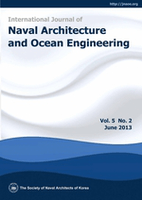
International Journal of Naval Architecture and Ocean Engineering
Exploring the depths of naval architecture and ocean engineering.International Journal of Naval Architecture and Ocean Engineering is a premier academic journal dedicated to advancing the fields of naval architecture and ocean engineering. Published by the SOC NAVAL ARCHITECTS KOREA, this Open Access journal has been a vital resource for researchers and industry professionals since its founding in 2009, providing unrestricted access to high-quality, peer-reviewed articles. With a notable Q2 ranking in both Control and Systems Engineering and Ocean Engineering, it ranks among the top journals in its category, offering valuable insights into emerging technologies and methodologies. The journal’s reputation is further highlighted by its Scopus rankings, positioning it within the top 30% of journals in Ocean Engineering and the top 31% in Control and Systems Engineering as of 2023. Based in the vibrant academic hub of Seoul, South Korea, the journal invites manuscripts that explore innovative solutions and critical research to address the challenges in naval and oceanic environments, contributing to the global dialogue on sustainable maritime practices.
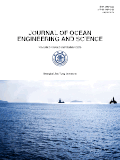
Journal of Ocean Engineering and Science
Transforming marine environments through cutting-edge research.The Journal of Ocean Engineering and Science, published by Elsevier, is a prominent academic journal dedicated to advancing the field of ocean engineering and environmental sciences. Since its inception as an Open Access journal in 2016, it has rapidly gained recognition, achieving significant impact factor ratings with notable placements in the prestigious Q1 category for Ocean Engineering and Oceanography, and Q2 for Environmental Engineering in 2023. With a remarkable ranking of #3 out of 105 in Ocean Engineering and #4 out of 145 in Oceanography according to Scopus, the journal plays a critical role in disseminating cutting-edge research and innovative solutions addressing complex challenges faced by marine environments. Operating from Amsterdam, Netherlands, the Journal of Ocean Engineering and Science invites contributions from researchers, professionals, and students worldwide, emphasizing the importance of interdisciplinary approaches in achieving sustainable maritime practices.

International Journal of Protective Structures
Elevating standards in risk management and materials engineering.International Journal of Protective Structures is a leading peer-reviewed publication dedicated to advancing the field of protective structures, focusing on innovative designs and methodologies relevant to future applications in safety, risk management, and materials engineering. Published by SAGE Publications Ltd in the United Kingdom, this journal has established itself as a vital resource for researchers, professionals, and students alike, notably holding a strong presence in Scopus rankings within its categories—including Q2 in Building and Construction, Mechanics of Materials, and Safety, Risk, Reliability and Quality. The journal aims to disseminate high-quality research from 2010 to 2024, emphasizing both theoretical and practical implications in its scope. By offering crucial insights into protective structural development and resilience against various risks, International Journal of Protective Structures plays an important role in shaping the discourse within its fields. With an ongoing commitment to accessibility and knowledge sharing, this journal is indispensable for those striving to innovate and implement safe structural engineering practices.

Brodogradnja
Empowering Knowledge in Mechanical and Naval EngineeringBrodogradnja is a distinguished open-access journal dedicated to the fields of Mechanical Engineering and Naval Architecture, published by the University of Zagreb's Faculty of Mechanical Engineering & Naval Architecture. Since its launch, the journal has been at the forefront of disseminating valuable research and advancements in engineering design, marine technology, and shipbuilding practices, contributing significantly to both academic literature and industrial applications. With an impressive Q1 ranking in Mechanical Engineering and a Q2 ranking in Ocean Engineering for 2023, it stands as a pivotal resource for researchers, professionals, and students alike. Moreover, the journal's commitment to open access since 2005 ensures that cutting-edge research is accessible to a global audience, facilitating collaboration and knowledge-sharing among experts in the field. Based in Croatia, Brodogradnja continues to uphold the legacy of high-quality technical scholarship and innovation, making it an essential platform for advancing marine engineering and related disciplines.

International Journal of Steel Structures
Bridging Theory and Practice in Steel EngineeringWelcome to the International Journal of Steel Structures, a distinguished publication dedicated to advancing the field of civil and structural engineering since its inception in 2010. Published by the Korean Society of Steel Construction (KSSC), this journal aims to provide a platform for researchers and professionals to share innovative findings and essential insights related to steel structures, emphasizing both theoretical and applied research. With an impact factor that reflects its growing recognition—ranking in Q3 within the civil and structural engineering category—the journal has positioned itself as a significant contributor to the body of knowledge in this vital field. Although currently not an open-access publication, it remains an invaluable resource for students and scholars keen on exploring contemporary challenges and advancements in steel construction. Located in Seoul, South Korea, the journal continues to evolve, converging its presence into the future, with publication efforts spanning through to 2024. Engage with us as we explore the innovative applications and developments in the realm of steel structures.
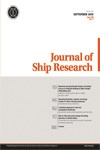
JOURNAL OF SHIP RESEARCH
Pioneering insights in ship research for a sustainable maritime industry.JOURNAL OF SHIP RESEARCH is a premier publication in the field of marine engineering and naval architecture, published by the Society of Naval Architects and Marine Engineers. With a focus on advancing the science and practice of ship design and construction, this journal has become a vital resource for researchers, professionals, and students alike. The journal spans a historical range since its inception in 1969 and provides critical insights and advancements in various related disciplines, highlighted by its strong quartile rankings in Applied Mathematics and Ocean Engineering as of 2023. Although not an open-access publication, it offers valuable research papers that are influential in shaping engineering practices and methodologies across the globe. With an ISSN of 0022-4502 and an E-ISSN of 1542-0604, the journal is available to a broad audience, providing essential knowledge that bridges theory and practical applications in the evolving maritime domain.